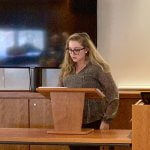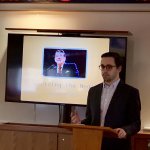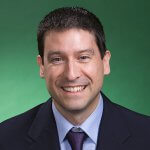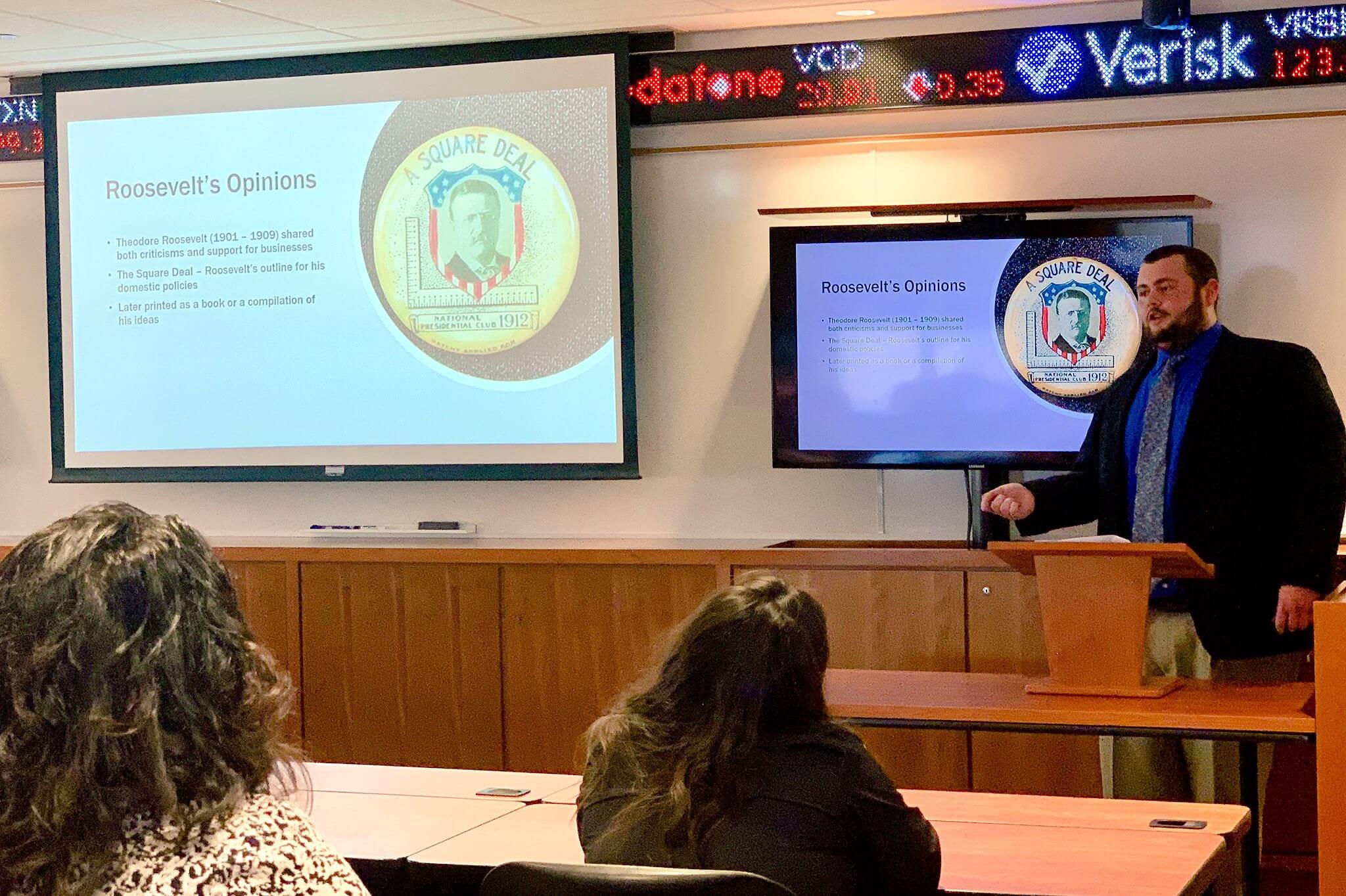
Nichols College senior Savannah Taylor
By LORRAINE U. MARTINELLE
The Nichols College History Department and Fischer Institute are sponsoring the first Media and Politics in America Conference Tuesday, Dec. 4, and Thursday, Dec. 5, featuring presentations in Fels Student Center, Room 210, by Nichols students in History Program Chair and Professor Michael Neagle‘s History 480W seminar. Three students each day present on a theme related to media and politics in history. After the students’ presentations, audience members ask questions about their research.
Tuesday’s theme was “Principles and Scandals,” and it featured three student panelists: Nichols College senior history major Sebastian Sandorfi of Northborough, Mass., presented on the Sherman Antitrust Act during Theodore Roosevelt’s presidency; senior history major Savannah Taylor of Shrewsbury, Mass., shared her research on “Pamphlets of the American Revolution”; and senior history and economics major Benjamin Davidson of Montreal, presented on “Surviving the Media: How (Ronald) Reagan Saved His Presidency During the Iran-Contra Scandal.”

Nichols College senior Benjamin Davidson
Thursday’s panel, themed “Images of War,” will feature junior history major Jack Champagne of Dudley on “Media Depictions of the Battle of Antietam”; junior history major Michaela Gamache of Woonsocket, R.I., on “Controversial Photography of the Vietnam War”; and junior history and marketing major Liam Meagher of Rutland on “Media Influence on the Gulf War.”
Here’s what Professor Neagle told Heard on The Hill about the conference:
HH: Why did you decide to have students present their research in a conference-style format?
MN: Basically two reasons: First, I wanted our students, who are junior and senior history majors, to get a sense of how professional historians share their ideas in such settings. We did a field trip to the New England Historical Association’s fall conference in October so they could see it for themselves. Second, I’ve worked with everyone in the class before, and I know they are high-caliber, high-achieving students. I wanted to challenge them with a project that would display their historical skills and knowledge to the broader campus community.

Nichols College History Program Chair and Professor Michael Neagle
HH: Why are you impressed with the caliber of their research?
MN: I know how hard the students have worked throughout the semester to familiarize themselves with the literature on their topic and then find primary sources to construct their own interpretations. Students have used a variety of sources — books, articles, images, digitized archives, videos — to craft these stories about past relationships between media and politics.
HH: Why is the conference theme “Media and Politics in America” important?
MN: Given the recent discourse of “fake news” and the popular denigration of the press, it’s important for our students to consider how we got to this point — and whether it’s truly unique in American history. Over the course of the semester, I think we’ve come to the consensus that tensions between the press and politicians are not unique and that politicians have always tried to manipulate various forms of media for their own ends. The severity of such tensions and manipulations, though, seems to have intensified in recent years.
Nichols senior Sebastian Sandorfi of Northborough, Mass., presents on the Sherman Antitrust Act during Theodore Roosevelt’s presidency. pic.twitter.com/3touiQCpyq
— Nichols College News (@NicholsNewsroom) December 4, 2018
Lorraine U. Martinelle is director of public relations and social media at Nichols College.
